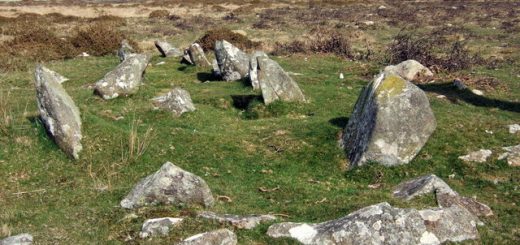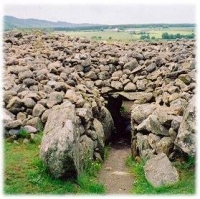St Johns Well, Sutton-on-the-Forest
According to The Legendary Lore of the Holy Wells of England by Robert Charles Hope (1893), ‘About a mile from the nunnery*, at the corner of the wood called St. John’s Wood, was formerly an ancient building, consisting of a small dome of stone and brick over a spring, well known in the neighbourhood as “St. John’s Well.” There is still discernible the remains of a causeway leading from the nunnery in the direction of this well. The water is reported to possess medicinal properties, and there is a large and convenient store cistern built on the east side, into which the water is admitted for the purpose of bathing. It was much resorted to in the days of superstition, and there are still the remains of stone steps for the more easy descent thereto. Near the mouth which admits the water into the bath is a large stone, called “the wishing stone,” and many a faithful kiss has this stone received from those who were supposed never to fail in experiencing the completion of their desires, provided the wish was delivered with full devotion and confidence.’
And the following is extracted from Folklore of Scottish Lochs ad Springs (1893) by James Murray MacKinlay. ‘Pennant** tells of a cistern connected with St. John’s Well, near Moxley*** Nunnery, at one time much used for bathing. Near these, and below the Surface of the water, was a piece of rock called the Wishing S tone. Anyone who kissed this stone with firm belief in the efficacy of the charm would have his desire granted. In this case the power of securing the fulfilment of wishes went hand in hand with the power of curing diseases.’
This final quote is taken from A History of the County of York North Riding: Volume 2. (1923) ‘The remains of an old causeway lead from the site of the nunnery to a well in the north-east of the parish of Sutton-on-the-Forest called St. John’s Well. It was supposed to possess medicinal properties, and has the usual wishing stone.’
*Moxby Priory
**Thomas Penant, A Tour in Scotland
***I think Hope and MacKinlay both referred to Moxby as Moxley.




Recent Comments